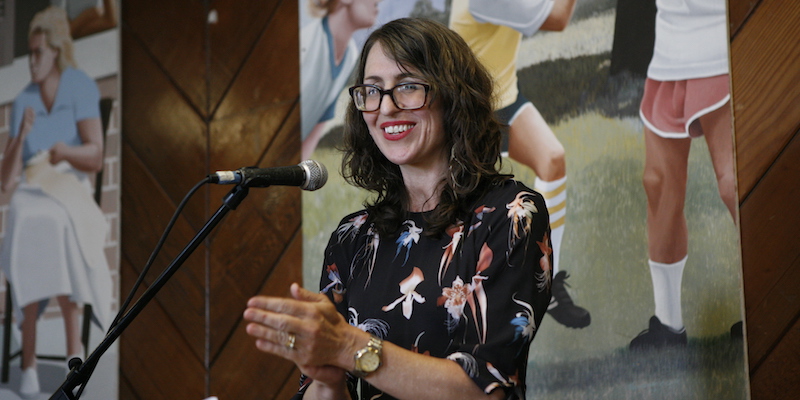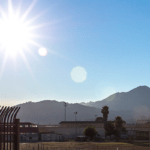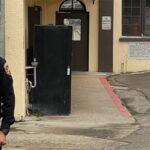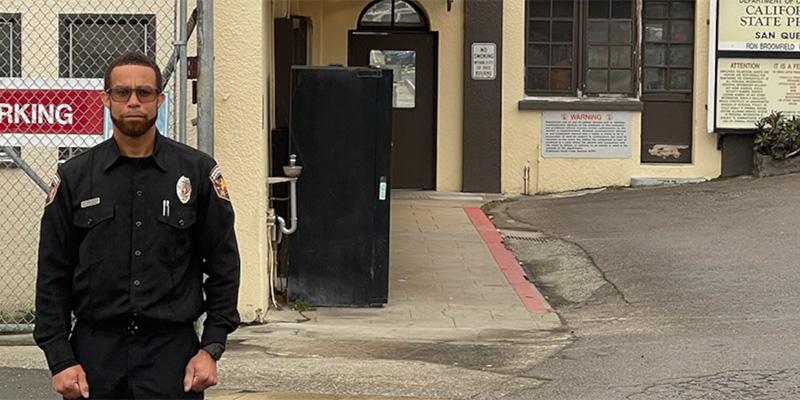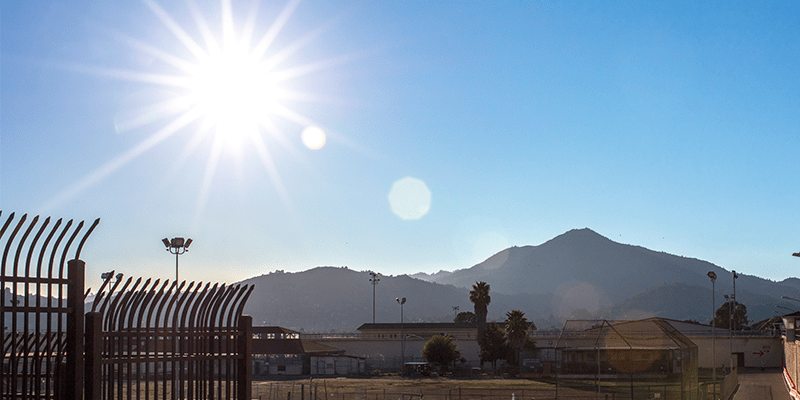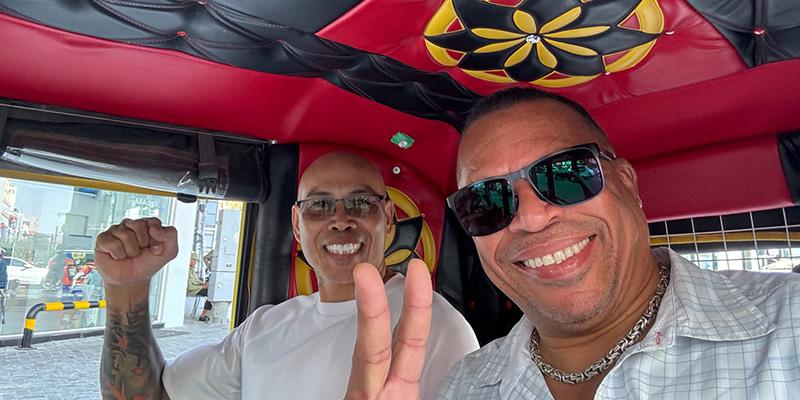Dear friends,
I’m writing several months into the pandemic, which has closed our staff and faculty off from our students, and which has begun to spread among prison populations throughout the US, at rates often far higher than in the general public. It seems at this point that it could be many months before our regular courses are up and running again.
From the start of the pandemic, we’ve been confronted with questions and decisions that feel like ethical thought experiments, but that are all too real: initially—should we keep plowing through the semester, at the risk of bringing the virus into the prison, or to pull our faculty and staff out, severely diminishing the quality of life inside the prison, interrupting students’ academic pathways, and compounding their vulnerability and isolation at the worst possible time? How do we balance risk to life against quality of life? And then, when the answer to that set of questions started to seem more and more obvious, the question that has dogged much of the world of prison higher education swiftly emerged: should we try to devise a way to continue offering credit classes at a distance, even though we know that the quality that we see as the cornerstone of our work would be severely compromised? Or more generally, once we determined that it would not be feasible to continue to offer legitimate credit-bearing coursework inside the prison, where should we focus our energy and resources? What is a college when it can’t run classes?
It seems to me that part of the pandemic experience for almost everyone has included such a barrage of practical and existential questions, at every level, exhaustingly, every day. Should I pull my children out of school? Visit my parents? Teach outdated math to my 6th grader? Am I doing everything I can to flatten the curve? Is technology saving us or poisoning us? What activities put me and others too severely at risk, and what can we or must we continue to do, to preserve our sanity? How has it all come to this? Who am I to complain, when I can sit so comfortably, in full health, on this couch, and go for a run safely?
I’m powerfully aware that my education and access to conversation and consultation with thoughtful and experienced colleagues make it possible for me to think these questions through from multiple angles and to make difficult and sometimes painful decisions with confidence. To wade through this time of crisis and unrest in America and globally, we all need access to trustworthy information; we must be able to think critically and ethically; we need to understand public health principles and basic math; we have to have a grasp of history and politics; we need to have the tools to consider claims about identity and difference carefully; and we have to have opportunities to consider others’ opinions. These and so many other areas of thought and intellectual life are vital for everyday survival, for ethical decision making, now more than ever.
So when we ask what a college is when it can’t run classes, the current calamity is teaching me that our most fundamental responsibility as a college is to help ensure that all people have access to information, learning, and productive dialogue, so that they can take care of themselves, their families, and their communities. Those who are most vulnerable are precisely those who don’t have access to these things. Our students are people who are equally owed these pursuits as rights and whose voices are equally and urgently needed in civic exchanges. Course credits and degrees are critical, but education is more than the semester grind. If we aren’t able to run classes, we can still agitate for and facilitate these crucial skills and dialogues.
So our work continues. As Jody’s letter recounts, our first thought has been for the wellbeing of the community that our campus is embedded within—that is, the entire community of San Quentin. Without physical and emotional safety, learning and thinking are difficult and sometimes impossible. And in voluminous responses to our care packages, we have heard again and again that people at San Quentin are hungry for information and intellectual stimulation. Thanks to the support of iTVS we are now planning a documentary film series to be aired on the prison television channel during the summer. We’re also working with San Quentin to make a large quantity of books that we have stored inside the prison available to the entire population. No amount of academic materials can duplicate the classroom experience, but intervening in the barren intellectual landscape of the prison however possible is especially crucial right now.
Although communication with our students is somewhat delayed by the now-overwhelmed prison mail system, it is still possible, and vital, to hear from them. Specifically related to the current crisis, we are asking how the lives of incarcerated people during this pandemic can be witnessed, so that their social invisibility doesn’t mean their history goes unrecorded. To this end, we have begun an oral history project, which we will be working with students on throughout 2020. Students will learn oral history techniques, then interview others in the prison about their experiences, and develop written narratives to document life inside San Quentin during the pandemic. Through this project, we hope to learn about and disseminate to the broader public a set of experiences and accounts that would otherwise go unseen.
We are also taking this time to continue to building out key features of our program for when we are able to get back inside the prison, exploring ways we may alter and supplement the curriculum during interruptions like the pandemic, lockdowns, and quarantines without compromising quality, rigor, and student support. We’re working with faculty and with our Chief of Institutional Effectiveness and Accreditation, Melanie Booth, to review college preparatory and credit course curricula, as well as to develop regular cycles of learning assessment. Melanie has also been leading the work of constructing the infrastructure and processes required for us to achieve Initial Accreditation status with ACCJC. We remain on track with our accreditation timeline.
During this break from the usual demands of the semester, we’re also turning attention back to our long-standing efforts to bring laptops into this prison. This would greatly improve our students’ access to research materials and other crucial learning tools, as well as prepare us better to continue providing students access to education in the future when we cannot enter the prison. In partnership with leadership at San Quentin and in CDCR, we hope to be able to provide a vastly improved technological education to our students by the time we return to the prison.
Finally, we have been reaching out to alumni and developing plans about future alumni relations. Our team has been working to locate and contact every former student who has been released from prison, to learn about their well-being and needs. In consultation with David Cowan, our Director of Operations and Co-Director of the re-entry organization Bonafide, our Director of Student Affairs, David Durand, has been working to develop our alumni services program. Our aim is to eventually maintain regular contact with our former students, and to provide them with ongoing academic and professional guidance, information, and resources, as well as other critical support services and professional development and networking opportunities.
In the wake of recent horrific reminders of the brutality of racial inequality in America, in the midst of a public health crisis that is unequally ravaging already vulnerable populations, it is clear to me is that the path forward requires a new dedication not only to the safety of the vulnerable, but also to equipping all people with skills, information, tools, and resources, and outlets for their voices and life experiences to be expressed, heard, and learned from. We miss our students terribly, but it’s some relief that we can continue to serve them from afar for now.
Amy Jamgochian
Chief Academic Officer
Please note that the Prison University Project became Mount Tamalpais College in September 2020.
